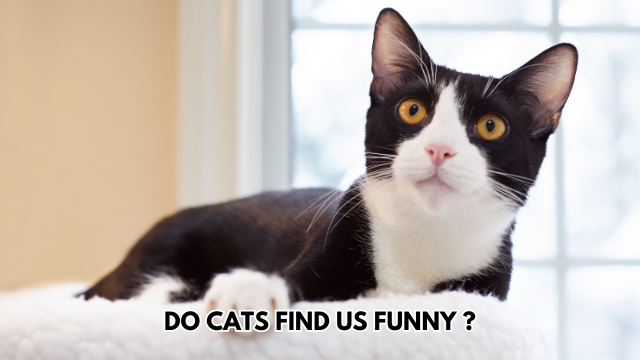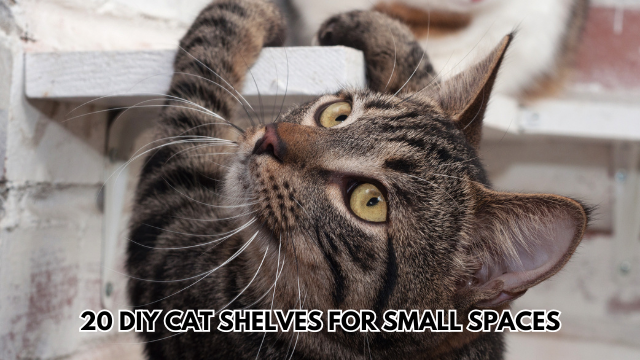Have you ever caught your cat staring off into space, completely still, and wondered, “What do cats think about when they just sit there?” You’re not alone.
- The Art of Observation
- Strategizing Their Next Move
- Processing Memories and Experiences
- Emotional Reflection
- Sensing the Unseen
- Simply Enjoying the Moment
- Bonus Tip: Talk to Your Cat
The Mystery : What Do Cats Think About Anyway?
Cat owners worldwide are curious about the mystery behind those long, thoughtful gazes. Interestingly, studies suggest that cats are far more complex than we give them credit for.
According to research published by Animal Cognition, cats possess an understanding of object permanence, meaning they are aware that objects (or people) continue to exist even when out of sight.
This is just the tip of the iceberg when it comes to feline cognition.
But what exactly do they think about during those quiet moments? Let’s explore the possible musings of our feline companions.
The Art of Observation
Cats are natural-born observers. When they sit still and stare at nothing, they’re not just zoning out; they’re keenly aware of their surroundings.
According to Dr. John Bradshaw, author of Cat Sense, cats have highly developed senses that allow them to notice even the tiniest changes in their environment.
This behavior harks back to their wild ancestors who needed to be vigilant hunters and wary of predators.
Your cat might be watching the flicker of a shadow, the sway of a curtain, or even dust particles floating in the air.
To us, it might look like they’re staring at nothing, but to them, their surroundings are full of subtle movements. In a way, they are practicing mindfulness, living entirely in the present moment, absorbing every tiny detail.
Practical Tip: Give your cat a window perch or a comfortable spot with a view of the outside world. It not only enriches their environment but also satisfies their natural curiosity and observational skills.

Strategizing Their Next Move
Ever noticed how your cat seems to appear out of nowhere when you’re opening a can of food?
Cats are strategic creatures. During those quiet moments, they might be planning their next move, whether it’s pouncing on a toy, ambushing a sibling, or finding the coziest nap spot.
According to cat behaviorist Jackson Galaxy, cats are natural hunters, and even domestic cats retain the instincts of their wild ancestors.
When they sit still, they might be mentally mapping out their “hunting grounds” within your home. This could mean figuring out the best vantage point to observe a toy or the quickest path to the food bowl.
Practical Tip: Keep your cat mentally stimulated by rotating toys and creating play zones around the house. Interactive toys that mimic prey, such as feather wands or laser pointers, are particularly effective in satisfying their hunting instincts.
Processing Memories and Experiences
Cats have a more complex memory system than many people realize. According to a study published in Current Biology, cats display “episodic-like memory,” meaning they can recall specific events and experiences.
When your cat is sitting quietly, they might be reflecting on a past adventure, recalling where they last saw their favorite toy, or even remembering a previous encounter with a visitor.
Cats are also known to form strong emotional bonds and memories associated with their human companions. They can recall your scent, your voice, and even your daily routines.
When they’re sitting still, they might be anticipating your next move, like when you’ll get up to feed them or when you usually settle in for a cuddle on the couch.
Practical Tip: Maintain a consistent routine with feeding times and play sessions. Cats thrive on predictability, and a stable routine helps them feel safe and secure.
Emotional Reflection
Cats are emotionally complex creatures. They experience a range of emotions, from joy and curiosity to anxiety and even grief.
According to a study by the University of Lincoln, cats are capable of forming deep emotional bonds, not only with their owners but also with other pets in the household.
When a cat loses a companion, they might sit quietly, reflecting on that absence. They can display signs of grief, such as reduced appetite, increased sleep, or a change in vocalization.
It’s not just about missing a fellow pet; cats can also feel stressed by changes in their environment, like moving to a new home or a change in household dynamics.
Practical Tip: If you notice changes in your cat’s behavior after a significant event, give them time to adjust and offer extra comfort and attention. In severe cases, consult a vet or a cat behaviorist for guidance.
Sensing the Unseen
Cats have heightened senses compared to humans. Their ears can pick up frequencies we can’t hear, and their sense of smell is far superior to ours.
When your cat is sitting quietly, they might be tuning into sounds or scents that are imperceptible to you, like the faint rustle of a mouse in the wall or the distant chirp of a bird.
According to PetMD, a cat’s hearing range is between 48 Hz and 85 kHz, compared to humans who hear between 20 Hz and 20 kHz.
This extraordinary hearing allows them to detect even the faintest sounds, which could explain why they sometimes stare off into space as if listening to something only they can hear.
Practical Tip: Make sure your cat has a quiet, safe space to retreat to if they become overstimulated by sounds or scents.

Simply Enjoying the Moment
Sometimes, when a cat is just sitting there, they are simply enjoying the present moment.
Cats have a natural ability to practice mindfulness. They can sit for long periods, basking in a sunbeam, feeling the gentle breeze, or simply enjoying the comfort of their favorite spot.
Cats don’t need constant stimulation like humans.
They are content with the simplicity of just being. This zen-like state is a reminder to us humans about the importance of slowing down and savoring the moment.
Practical Tip: Create comfortable resting spots for your cat around the house. Soft beds, cozy blankets, or even a cardboard box can provide them with a sense of security and relaxation.
Bonus Tip: Talk to Your Cat
Engaging in gentle conversation with your cat can strengthen your bond. According to Science Daily, cats are capable of recognizing their owner’s voice and can find comfort in familiar sounds.
So, don’t hesitate to have a chat with your feline friend; they might not respond in words, but they are likely listening and appreciating the attention.
Read: What Are Cats Thinking When They Meow? Should I Meow Back ?
So, what do cats think about when they just sit there?
They might be observing their surroundings, planning their next move, reflecting on memories, processing emotions, sensing unseen elements, or simply enjoying the present moment.
Each cat is unique, and their thoughts are shaped by their experiences, environment, and personality.
Understanding your cat’s behavior can help you create a more enriching environment, deepen your bond, and ensure their well-being.
So the next time you catch your cat staring off into space, take a moment to appreciate the complex inner world behind those curious eyes.
By tuning into their quiet moments, we might just learn something about slowing down and savoring life, just like our feline friends.😻
Watch Videos about Cat & Kitten Care on Youtube @naowthecat